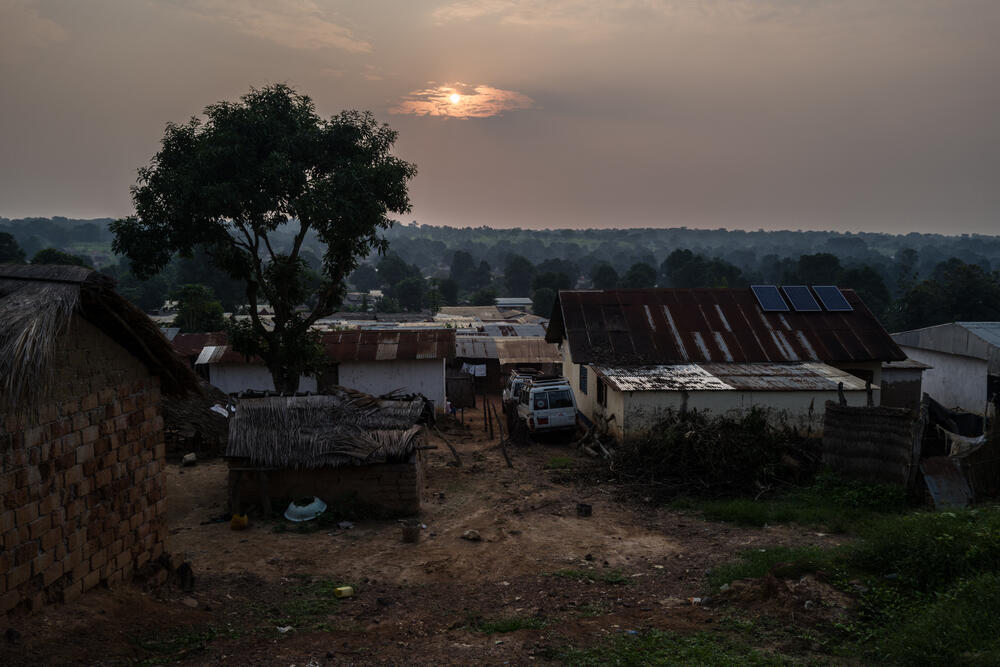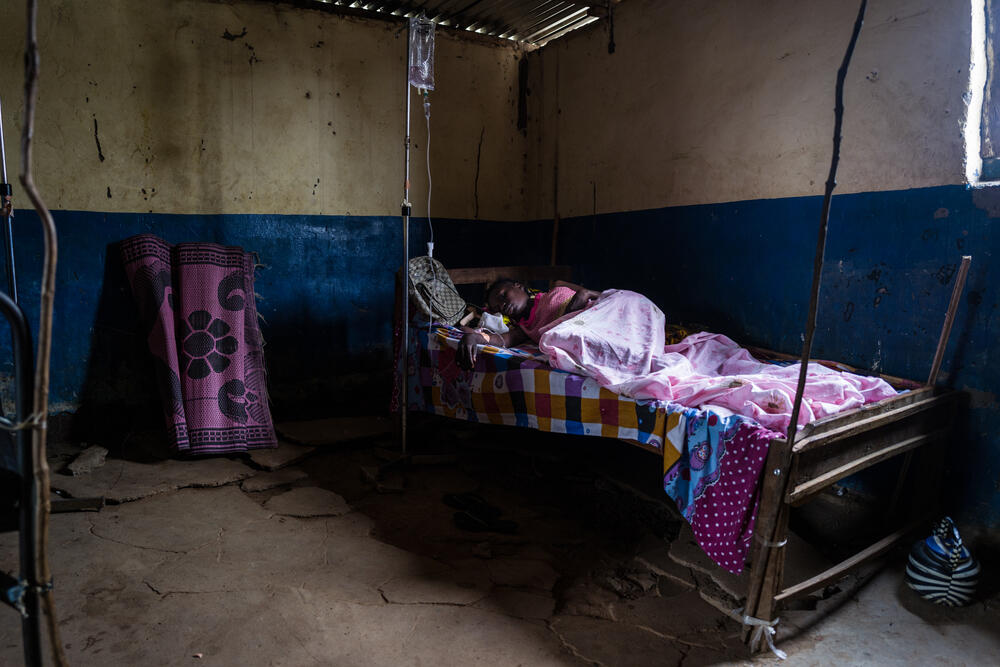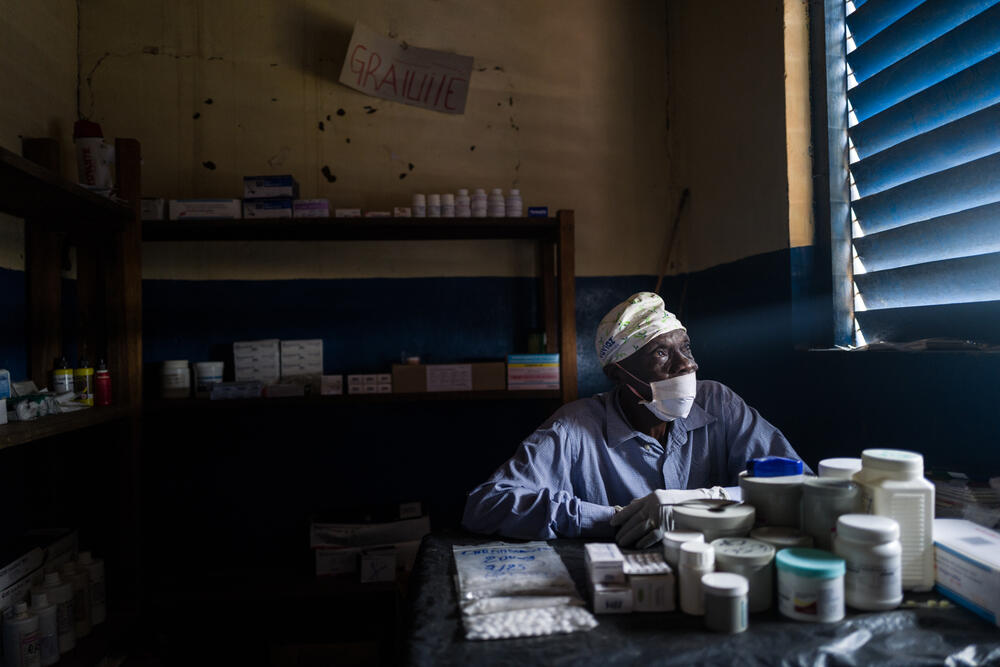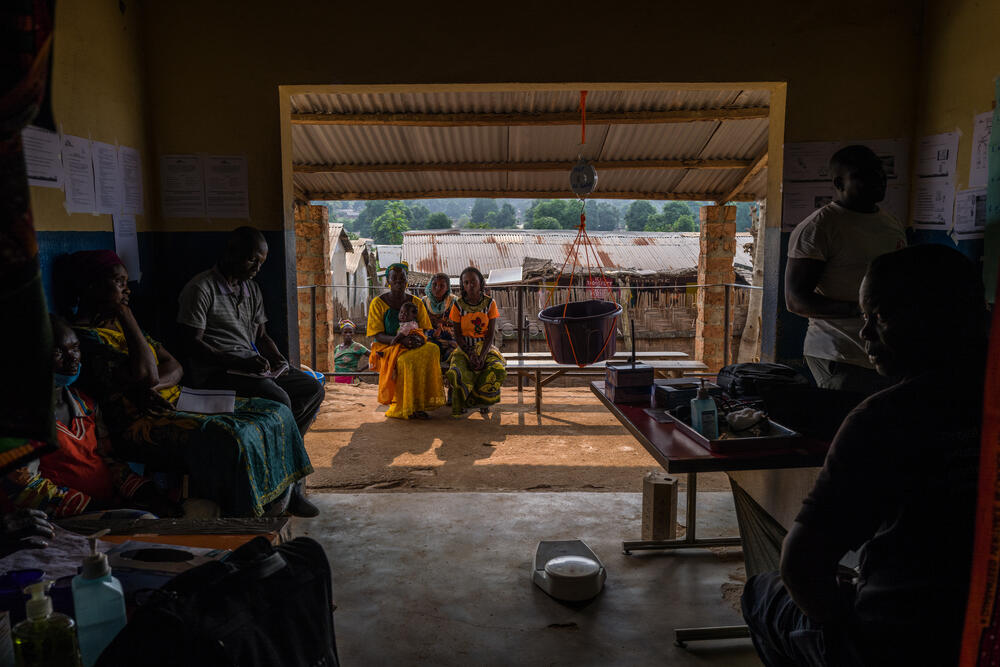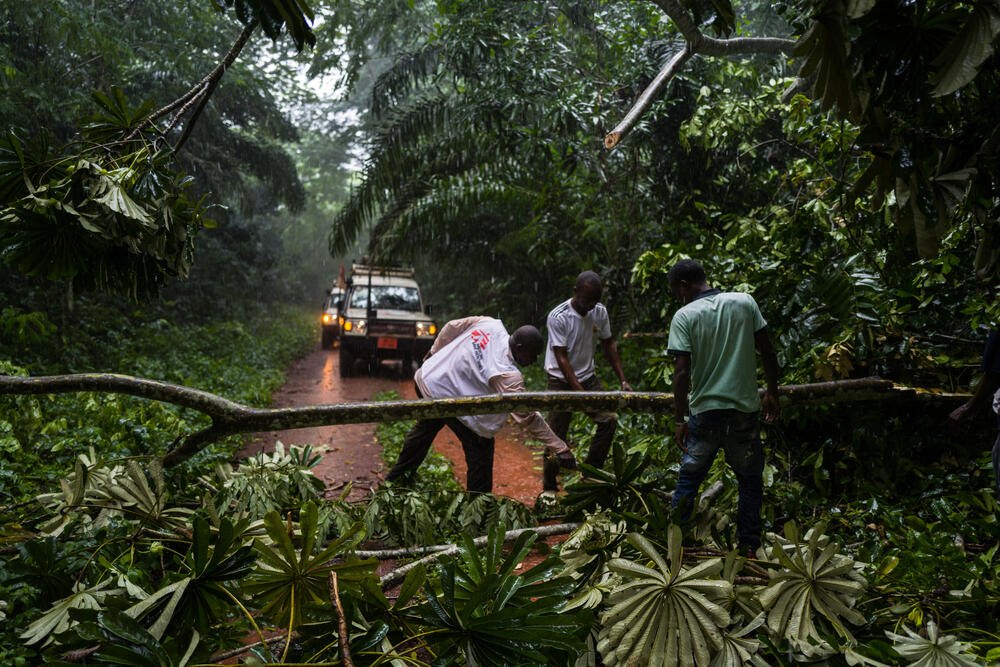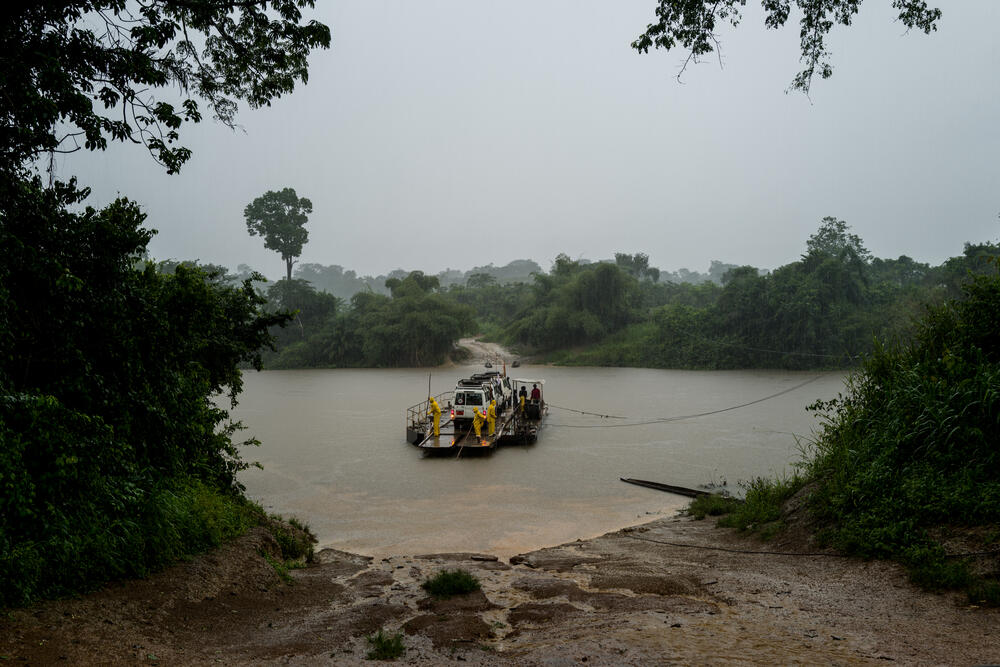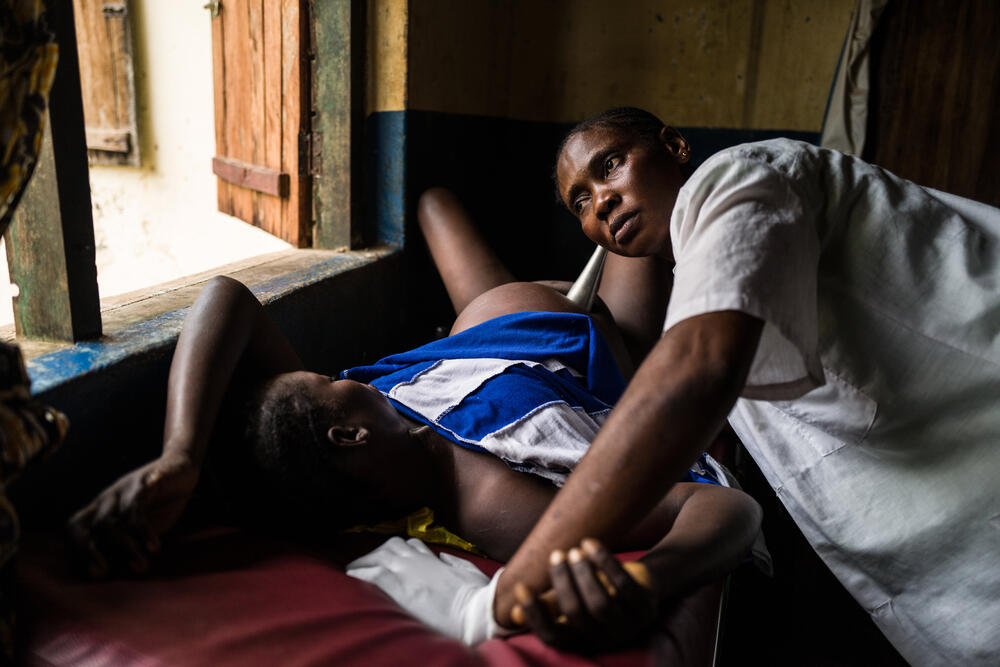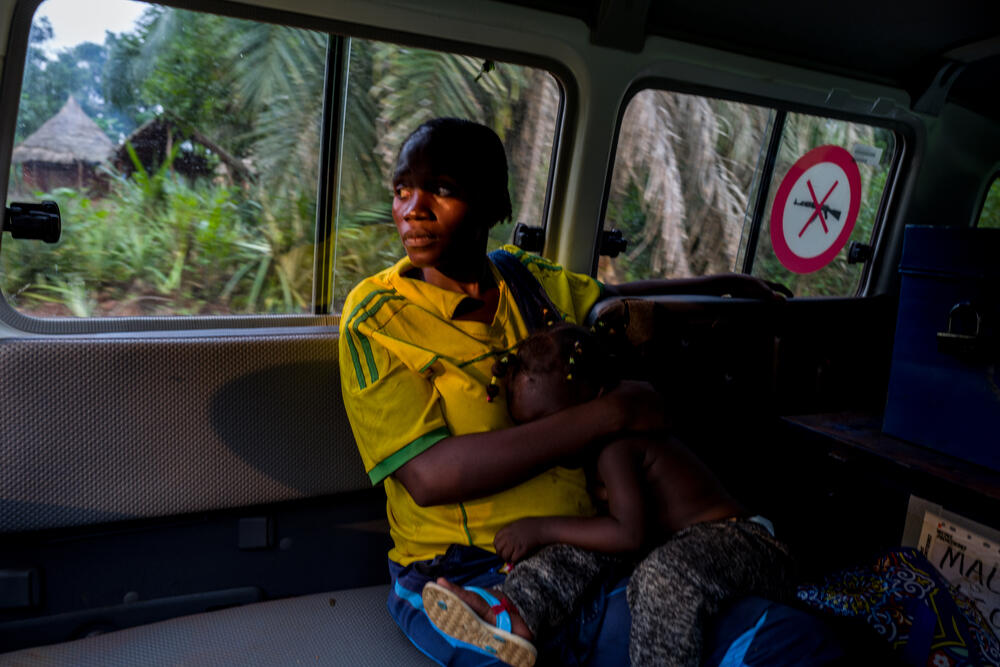Return to Nzacko
An MSF team reach a remote village in the Central African Republic, cut off from the outside world by conflict...
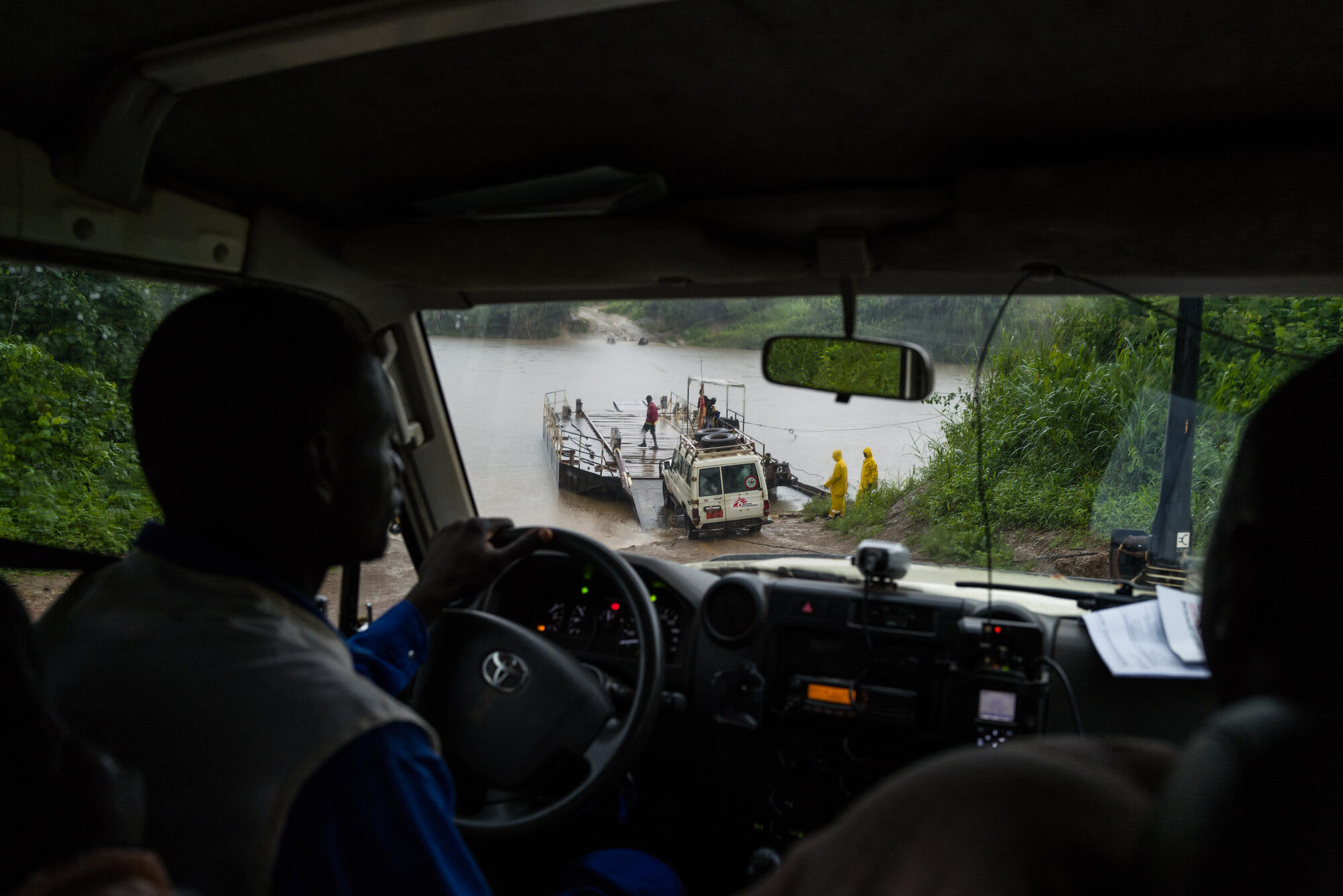
For months, violence and insecurity have forced people to flee the village of Nzacko. At the same time, humanitarian aid has been unable to reach this remote part of the Central African Republic (CAR).
A few weeks ago, a Médecins Sans Frontières / Doctors Without Borders (MSF) team was the first to reach this cut-off town whose story mirrors a crisis that has gripped the wider country for years.
As MSF staff and supply vehicles enter Nzacko on a late July evening, they drive past a succession of demolished buildings overgrown with plants, burnt-out cars and abandoned markets and shops.
The silence is a sharp contrast to the fury of the clashes that has resounded in this area for months.
Like so many other villages in CAR, Nzacko has been regularly hit by attacks, lootings, extortion and destruction. For a decade now, the 15,000 residents have been trapped in a cycle of violence.
Rose, 44, knows this all too well. Like other people from Nzacko, she has experienced the consequences of the collapse of her village and her country.
“In 2013, our lives were turned upside down,” she remembers
“Because of violence and massacres, we had to flee and hide for months. We didn't have much to eat and my daughter started to get very sick. When we finally got back home, there was no food in town.
“My daughter suffered from malnutrition. We went to the health centre, but there was nothing there, and the nurses had fled to Bangassou.
“She died that night. With the help of our neighbours, we buried her a few metres from the house.”
Three years after this tragedy, Rose was about to give birth again when massive clashes resumed in the village, resulting in the destruction of more than 10,000 homes and a new cycle of misery.
“I obviously couldn't flee, and the health centre was abandoned again,” she says.
“The only midwife left in Nzacko came to my house to help me. She just had a plastic tarp and lemon to disinfect her scissors. There was not even any soap left. I gave birth on that tarp... but when my daughter was born, we didn't hear her scream. We didn’t hear her cry.
“She died a few hours later. We buried her alongside her sister.”
This double tragedy haunts Rose and her family, who had to flee again in January when the clashes resumed across the country following the presidential elections in late 2020.
“We were in the forest for four months,” says Jean-Marie, Rose's husband.
“Once again, we struggled to find food. We were all very weak, especially the children.”
Like Jean-Marie and Rose, most of the people of Nzacko fled the village and are now living in precarious conditions, unable to access humanitarian aid because of the insecurity.
It is a critical situation, which has actually been going on for years.
“With the exception of MSF, few organisations have had access to the village since 2017 even though the situation there is worrying for things such as malnutrition and waterborne diseases,” says Pelé Kotho-Gawe, an MSF nurse supervisor.
“Even if our trips were short, we managed to get there. But with the resumption of fighting earlier this year, access has been made impossible.”
As the clashes ended and the community gradually returned to Nzacko, MSF is now the first humanitarian organisation to reach the village with aid.
“When we arrived, we found a health centre in shambles,” says Pelé, leading this first MSF trip.
“The pharmacy was empty. Equipment was non-existent or inadequate, and the staff were not sufficiently trained to provide adequate care to the population while needs were enormous.
“In the forest, malaria and malnutrition had taken their toll.”
The team arriving on this late July evening had left the city of Bangassou almost 120 miles to the south more than 10 hours earlier.
In the pouring rain, the long journey had covered muddy roads and river crossings, as well as fallen trees that needed to be broken down for vehicles to pass.
The MSF team plan to stay for four days. They will restock the pharmacy shelves, conduct training for healthcare staff and community health workers, manage medical consultations and install solar panels to provide the electricity to cool vaccine supplies.
It’s all a race against time, given the number of patients squeezed into two poorly equipped wards with cracked walls and narrow beds.
A few days later, Octavia Braza, 33, is lying on one of the beds about to give birth to her seventh child. The contractions started more than three hours ago and she feels weak.
“She hasn't eaten all day because she has nothing left and has to feed her children,” explains Sylvie Grengbo, the midwife at the health centre. Sylvia is the same midwife who helped Rose give birth in 2017.
“This is going to be difficult,” she says.
Such situations of exhaustion and malnutrition can be life-threatening for both the mother and the child. In recent months, there has been a marked increase in maternal deaths in the area. Fortunately for Octavia, the arrival of MSF with glucose and misoprostol – a drug that helps induce labour – will help.
Medical care where it's needed most
Help us care for people caught in the world's worst healthcare crises.
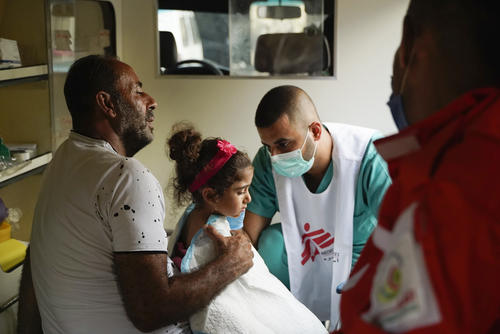
Afterwards, regaining some strength, Octavia finally takes her newborn son in her arms after five hours of effort. It's 5:30 PM. The baby is out of danger, and so is she.
Now, the sun is slowly setting over the village. Tomorrow morning, MSF staff will head back to Bangassou before returning to Nzacko next week. The needs here are high. Malaria, malnutrition, respiratory infections... there is a lot to do.
As the team leaves and the crowd gathers to thank them, a woman steps forward, supported by her sister and beside her daughter.
Her name is Veronique. She is seven months pregnant and in great pain. The team examines her and the conclusion is immediate: she must be taken to Bangassou urgently. Thankfully, this time, the journey will only take eight hours.
Once back at the MSF hospital, Pelé Kotho-Gawe takes her to the emergency room.
“We will keep her in observation for a few days,” he says.
“If the pain continues, she will deliver here. In her condition, staying in Nzacko was not an option. I am reassured. She is in good hands.”
Good hands are what’s most needed in Nzacko, too. As in so many other villages across CAR, years of violence have fuelled this catastrophic situation.
MSF in the Central African Republic
Many people in the Central African Republic (CAR) are deprived of the most basic essential services.
According to the UN, more than half of the population is in need of humanitarian aid and nearly 1.4 million people are displaced or refugees. At the same time, CAR continues to have one of the most critical situations in terms of life expectancy, maternal mortality, malnutrition and access to healthcare.
